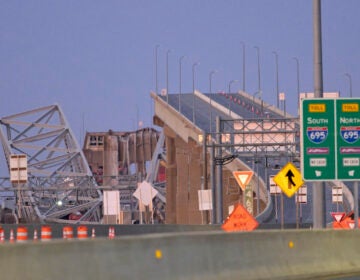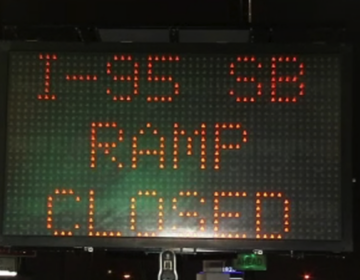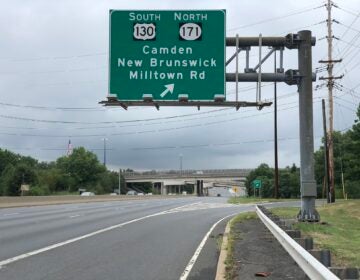Peddling a more efficient way to get around
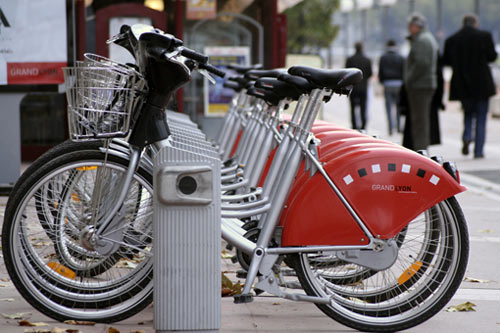
Bike Share in Lyon, France
Updated: BikesharePhilly is asking people to email the mayor through its website at www.bikesharephilly.org/takeaction
Jan. 21
By Kellie Patrick Gates
For PlanPhilly
Russell Meddin believes a flock of simple, human-powered machines could transform transportation in Philadelphia.
That’s because in a growing number of cities across the world and nation, residents, visitors and commuters can borrow a bicycle to get where they are going – and drop it off near their destination.
Meddin – a member of the Bicycle Coalition of Greater Philadelphia and Philadelphia Urban Sustainability Forums – thinks a bike sharing program would work splendidly in William Penn’s neighborhood-oriented, human scale, city. He became intrigued with the concept in the fall 2006, when his travels took him to a French city with a large program.
“I walked out of the railroad station in Lyon, and at the front door, there were bicycle stations,” Meddin remembered. “The idea that you can get off the train, hop on a bike and go where you want to go – at virtually no cost – is absolutely phenomenal,” he said. After being amazed, his next thought was, “We have to have this in Philadelphia.”
In attempt to make that happen, the Bicycle Coalition, Urban Sustainability Forums, Academy of Natural Sciences and Philly Car Share sponsored a free bike sharing symposium this past Thursday, Jan. 17, at the Academy of Natural Sciences and over 400 people showed up on a snowy night.
“It rained, it snowed, it was not the best of evenings,” Meddin said. “But we still filled the auditorium and put seats outside (in the hall) for people to watch on closed-circuit TV.”
Hundreds of people rode their bikes to the event, despite the weather. “The mayor came, and I think him just coming out of his automobile and seeing all the bicycles on the sidewalk” helped the bike share cause, Meddin said.
Nutter told the audience that a bike share program could reduce congestion and pollution, foster good health and cut household transportation budgets.
He also sought input from Philadelphians. Earlier that day, his office created a special email account to take messages on bike share. Here is the link to the BikeShare Philadelphia campaign, including a letter to email to the address Michael Nutter set up to gauge citizen interest: bikeshare@phila.gov.
http://www.bikesharephiladelphia.org/takeaction/
http://www.bikesharephiladelphia.org/home/
It pleased Meddin to hear this, because to him, it shows city government is at least receptive to the idea. And while not all forms of bike share are government run, all require the support of government, at least in terms of permits.
highlights video from the event:
http://www.bikesharephiladelphia.org/events/forum/
For more information, click here. Speakers included a city councilman from Lyon, and someone who helps run a small-scale recreational program in Pittsburgh.
“What we’re hoping will happen in the forum is that everybody in Philadelphia will come and listen to these people, and when they leave, will want to tell everybody in city government that this is something we need to have in Philadelphia,” Meddin said.
He estimates a program here, with all needed infrastructure, would cost about $10 million. There are several ways to fund these programs, some of which would cost the city nothing, but approvals and permits would still be needed, he said.
Thursday’s public forum was followed on Friday by an invitation-only meeting for the movers and shakers, elected and otherwise, whose support would be vital to the effort, Meddin said.
Attendance at the second event was also higher than the expected 70 or so – 100 people showed up, including city council staff members, representatives from the city’s streets department, parking authority and planning and commerce departments.
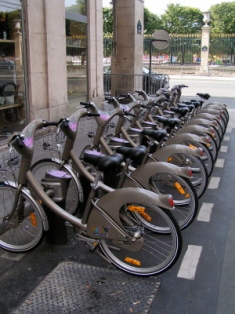
From Caroline Tiger at http://design-phan.squarespace.com/
“A citywide self-service bike-share program launched the day after Bastille Day, when I was in Paris. This is the Vélib (“velo” or “bike” + “liberté”) station outside my hotel near the Rue de Rivoli. It’s modeled on a similar scheme that has flourished in Lyon since 2005. At the same time, bike-sharing programs in other cities have floundered due to theft and vandalism. Think Philly could swing it?”
Bike share vehicles in Vancouver (click on photo to watch video)
How Bike Share works in other cities
Ever since his 2006 trip, Meddin, who is also co-coordinator of the Schuylkill River Park Alliance, has studied bike-sharing programs and the impact they have on their cities.
There are more than 70 such programs in the world, including the one in Pittsburgh and one in Tulsa, Okla. Other U.S. cities, including Chicago, New York and Portland have begun to investigate the concept.
The programs increase the use of public transportation and lessen automotive traffic and the congestion and environmental impacts that go with it, Meddin said. People use the bikes as “a bridge from where they are to the public transportation and a bridge from the public transportation to where they need to go.”
In Philadelphia, Bicycle Coalition Executive Director Alex Doty can imagine someone coming to the city from the suburbs for a meeting on South Street. Getting to Suburban Station is easy, but it could take two buses to get from there to the meeting, he said, so a bicycle would be more efficient. Ditto for the doctor at Penn’s Medical Center who wants to get to Pennsylvania Hospital.
Bike sharing increases bicycle traveling of all varieties, he said, because when bicyclists see other people on bikes, they imagine they can ride, too. Lyon did a study of its first-time users, and 97 percent said they had never before ridden a bicycle in the center of the city.
The more bikes that are on the road, the more comfortable people in cars become with riding with them, he said, and bike traffic slows down car drivers, and that makes everyone safer.
“The number one reason we don’t see more bicyclists in Philadelphia is traffic intimidation,” said Clayton Lane, deputy executive director and co-founder of Philly Car Share – the car sharing service that shares some of the logistics of a bike share program.
Other than that fear, “Philadelphia is probably one of the best environments to support bike sharing in North America,” he said. “There are a lot of destinations that are reasonable biking distance” and the city has a relatively large number of bike lanes miles.
And besides, Dody asks, if it’s a gorgeous summer day, wouldn’t it be great to take a bike from a Center City office out to the Art Museum steps or Boathouse Row for lunch?
Here’s how it would work:
Anyone could sign up for the bike share program, and they would be issued a swipe card, key fob, or other device that would allow them to pick up a bike at any bike station. (German programs tend to be operated by cell phone – the user sends a text to the bike share, and a text comes back with the closest bike station and a combination for the lock.) After use, users drop the bike at any other bike station in the city.
Station in Lyon, France
For a full-blown public use system to work well, stations need to be within a 300 yard radius from each other, on average. “That’s the distance people will walk without griping, and the distance people will ride to the next station because the one where they planned to drop off is full,” Meddin said.
Users could use the bikes for a full day or more, Meddin said. But they usually don’t – those who want to use a bike that much tend to rent from a shop or own their own, he said.
Some programs – like Pittsburgh’s – are free. But generally there is a small charge. Still, the first 30 to 45 minutes tend to be free, and then the cost is $1 or so per hour after that. The free period encourages many, short trips by multiple users each day, Meddin said.
The bikes must not only be purchased and maintained, but also moved en masse at key times during the day so that they are where they will be most needed at key times, such as the morning and evening rush hours.
To discourage theft, the bikes tend to be unusual looking. Their parts are not interchangeable with those of other bikes. And in some places, they come equipped with a GPS system so they can be tracked.
So how could Philadelphia come up with roughly $10 million to pay for this?
There are three common models, Meddin said.
In the most popular, a large advertising firm pays for everything. In return, the firm places street furniture – things like benches, public restrooms and bus shelters – and sells advertising for those spaces. The firm gets the revenue. This is how Lyon’s program runs, Meddin said.
In what Meddin said is the most difficult model, the system is run by a non-profit, which must seek grants and other funding streams. There is no street furniture with advertising, which appeals to some people who find the street furniture ugly or do not want corporate involvement, Meddin said.
In some places, including Copenhagen, the municipality runs the system. There is no free time on the bikes, as it requires a token to release them from the stations.
Both Doty of the Bicycle Coalition and Lane of Car Share believe a bike share program would complement their organizations’ missions and members.
Some people who own bicycles would still use bike share, Doty said. The evening of his interview with PlanPhilly was one of those days when Doty could not ride his bike from his West Philadelphia home to his office, because he had to pick up his son and daughter from daycare in Center City. He used public transportation instead.
But if a shared bike were available, he could have used one during his work day to attend meetings or a doctor’s appointment, he said.
Lane said that an October 2007 survey of Car Share’s 30,000 members showed half of them have ditched their cars, and 34 percent are using public transit more, and 18 percent are using bicycles more.
Lane can even imagine his organization running the program, with help from the city and other advocates. “I think Philly Car Share would be a natural candidate to operate a bike sharing system,” he said. “But there’s got to be funding.” Two other organizations approached Meddin at the symposium with an interest in learning more and possibly setting up a program, Meddin said.
Contact Kellie Patrick Gates at kelliespatrick@gmail.com
WHYY is your source for fact-based, in-depth journalism and information. As a nonprofit organization, we rely on financial support from readers like you. Please give today.




